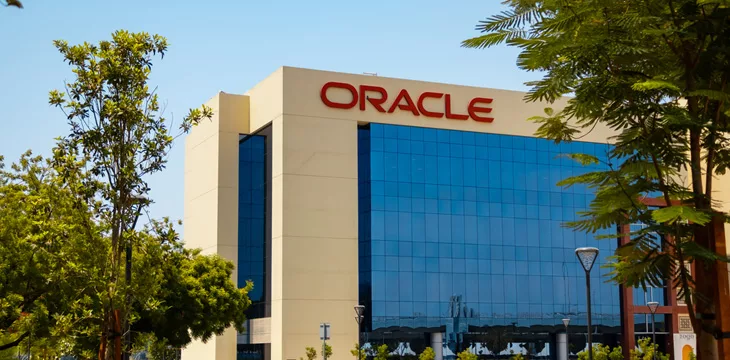|
Getting your Trinity Audio player ready...
|
Software firm Oracle (NASDAQ: ORCL)has rolled out a set of new artificial intelligence (AI) tools for users of its cloud services designed to improve workflow efficiency and productivity.
In a press release, the company confirmed that the new AI capabilities will be native to the Oracle Fusion Cloud Applications Suite, a robust holding of SaaS applications. The AI feature cuts across several business verticals, including HR, finance, marketing, and supply chain.
Oracle’s latest pivot to AI sees the software giant roll out over 50 generative AI use cases in one fell swoop built using Oracle Cloud Infrastructure (OCI).
“We have been using AI in our applications for several years and now we are introducing more ways for customers to take advantage of generative AI across the suite,” said Steve Miranda, vice president of applications development at Oracle.
The new AI capabilities embedded in Oracle’s cloud offering will allow users to generate insight narratives, reporting narratives, forecasts, and proposals. For supply chain and manufacturing vertical users, Oracle’s AI capabilities extend to negotiation summaries, generation of item descriptions, and AI-based supplier recommendations.
The new AI features include applications in HR, which can assist staff in survey generation, help candidates find relevant company information, and improve the state of job category landing pages.
“With additional embedded capabilities and an expanded extensibility framework, our customers can quickly and easily take advantage of the latest generative AI advancements to help increase productivity, reduce costs, expand insights, and improve the employee and customer experience,” added Miranda.
The inclusion of generative AI in its offering is expected to have an impact on customer experiences, allowing for personalized marketing campaigns. Oracle says brands using Oracle Sales can “close new deals faster,” with employees having an array of tools to “accurately track ongoing issues.”
AI application in the workplace
Analysts have described AI’s integration in the modern workplace as a double-edged sword, capable of heralding sweeping changes in the space. Proponents like the International Monetary Fund (IMF) and IBM argue that the long-term effects of AI and other emerging technology in the workforce surpass the short-term cons of potential job losses or steep onboarding costs.
IBM’s report predicts that up to 40% of the global workforce will require upskilling to keep pace with AI innovation, with entry-level roles at significant risk of being replaced by AI.
“As technology becomes more user-friendly, employees are also able to do more with less advanced technical skills,” said IBM.
In order for artificial intelligence (AI) to work right within the law and thrive in the face of growing challenges, it needs to integrate an enterprise blockchain system that ensures data input quality and ownership—allowing it to keep data safe while also guaranteeing the immutability of data. Check out CoinGeek’s coverage on this emerging tech to learn more why Enterprise blockchain will be the backbone of AI.
Watch: AI, ChatGPT, and Blockchain

 09-09-2025
09-09-2025 





